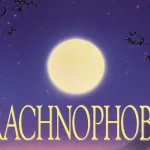Only Lovers Left Alive (2013)
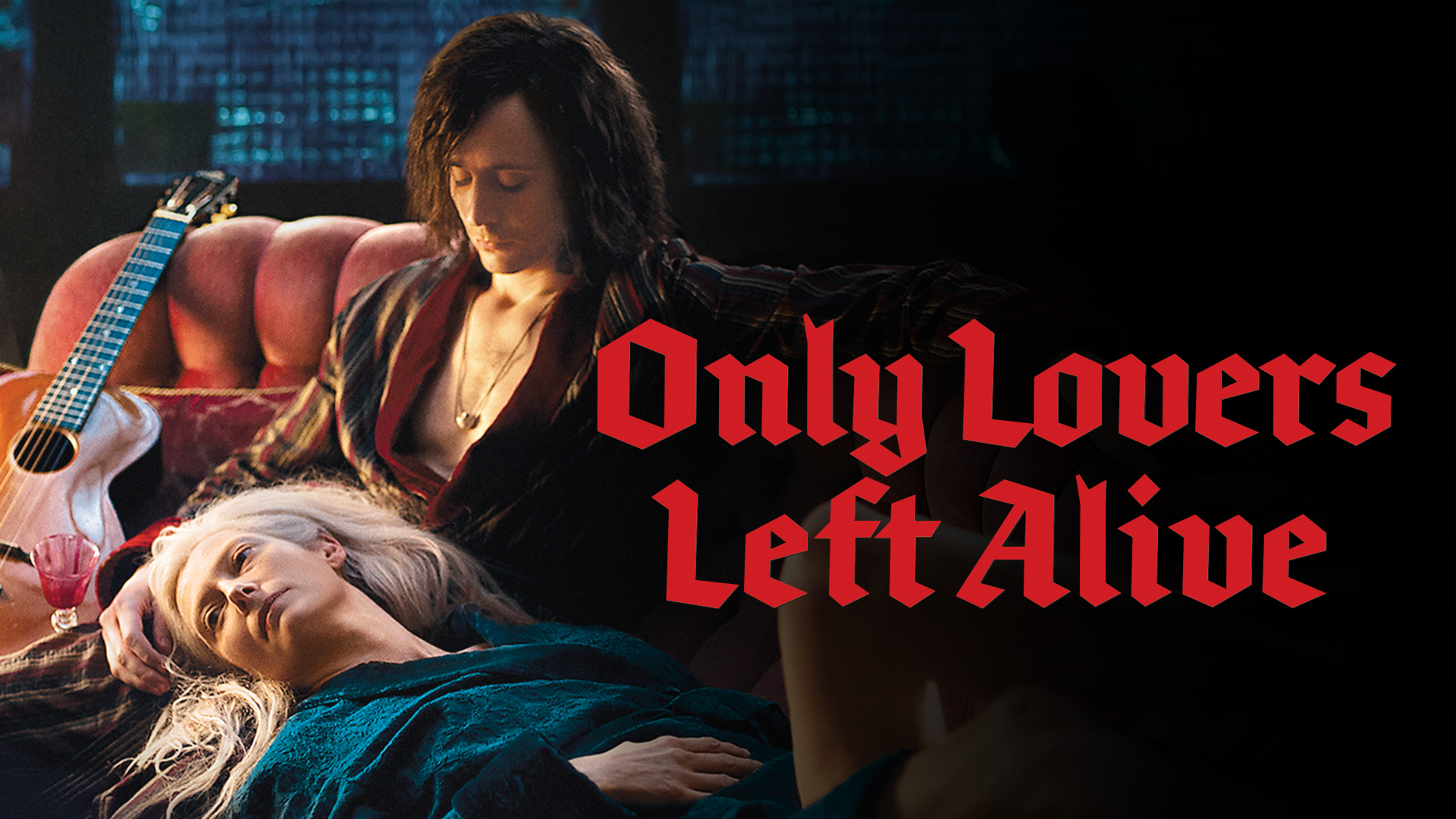
Only Lovers Left Alive (2013) is a unique blend of gothic romance, dark comedy, and philosophical musings, written and directed by Jim Jarmusch. This film stars Tilda Swinton and Tom Hiddleston as Eve and Adam, two immortal vampires who have lived for centuries and now face the ennui of eternity. Unlike traditional vampire tales, Jarmusch’s film is a slow-burn exploration of love, art, culture, and the passage of time. With its hauntingly beautiful cinematography, a stellar cast, and a melancholic yet humorous tone, Only Lovers Left Alive stands out as a deeply introspective and unconventional take on the vampire genre.
The film follows Adam (Tom Hiddleston), a reclusive musician living in Detroit, who is disillusioned with humanity and the state of the world. He spends his time composing music, but his isolation and despair over the destructive nature of modern civilization have led him to a deep sense of nihilism. His lover, Eve (Tilda Swinton), lives in Tangier and is more connected to the world around her. However, when Adam’s melancholy becomes overwhelming, Eve travels to Detroit to reunite with him. The two vampires share a love that spans centuries, and their relationship becomes the heart of the film. As they reflect on their past, they face new challenges, including Eve’s younger sister, Ava (Mia Wasikowska), who brings chaos and danger into their world.
At the core of Only Lovers Left Alive is a meditation on time, immortality, and the transient nature of human life. Adam and Eve, having lived for centuries, are both weary of the world but also deeply aware of the fleeting nature of human existence. Their immortality allows them to observe the evolution of art, culture, and history, but it also leaves them feeling detached from the ephemeral beauty of life. This tension between eternal life and the desire for something more meaningful is explored throughout the film, with both characters longing for a connection to something that can offer them purpose in their endless existence. Jarmusch’s pacing and dialogue reflect this existential struggle, making the film not just a vampire story, but a poignant exploration of the human condition.
The characters of Adam and Eve, portrayed by Tom Hiddleston and Tilda Swinton, are one of the highlights of Only Lovers Left Alive. Adam, with his brooding, introspective nature, is a vampire who has become disillusioned with humanity. He has retreated into the shadows, spending his days in his dimly lit home in Detroit, surrounded by his music, his art, and his collection of antique items. Tom Hiddleston’s performance is understated but magnetic, capturing Adam’s emotional isolation and his desire for a kind of beauty that no longer exists in the modern world. Eve, on the other hand, is more philosophical and connected to the world, embracing the beauty of history and culture. Tilda Swinton’s performance is ethereal and wise, portraying Eve as a character who is far older and more experienced than Adam, yet still yearning for the same emotional connection.
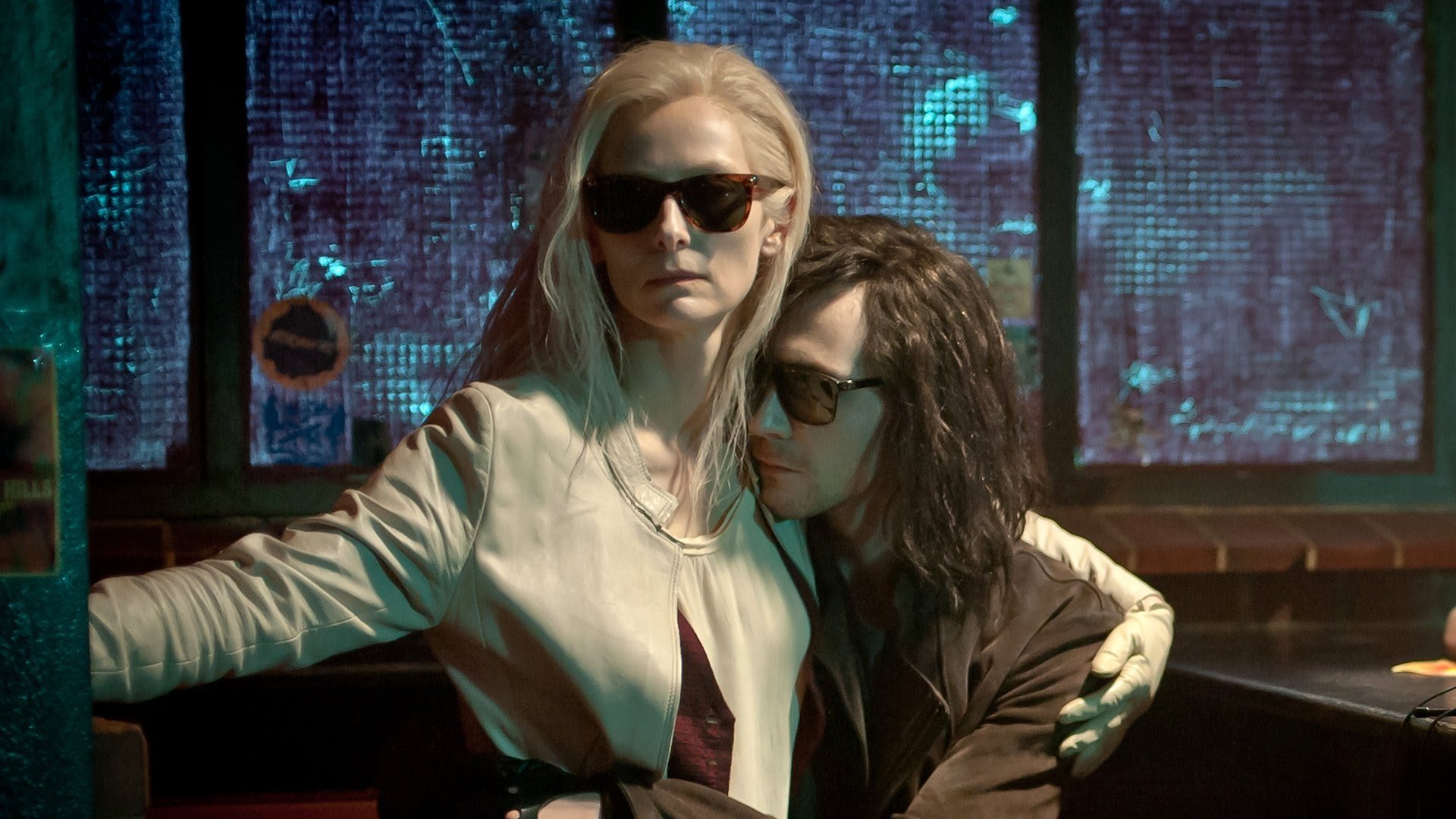
A recurring motif in Only Lovers Left Alive is the importance of music, art, and culture in sustaining Adam and Eve’s existence. Adam, a former rock musician, continues to create music that captures his melancholic worldview, while Eve finds joy in reading books and exploring the artistic history of the world. The film places a strong emphasis on how the two vampires’ lives are intertwined with human creativity. The characters’ appreciation for music, literature, and the arts provides a stark contrast to the consumerism and decay of modern society. The film’s soundtrack, which features music by Jarmusch himself, adds to the atmosphere of melancholy and beauty, using haunting melodies to emphasize the emotional depth of the characters’ experiences.
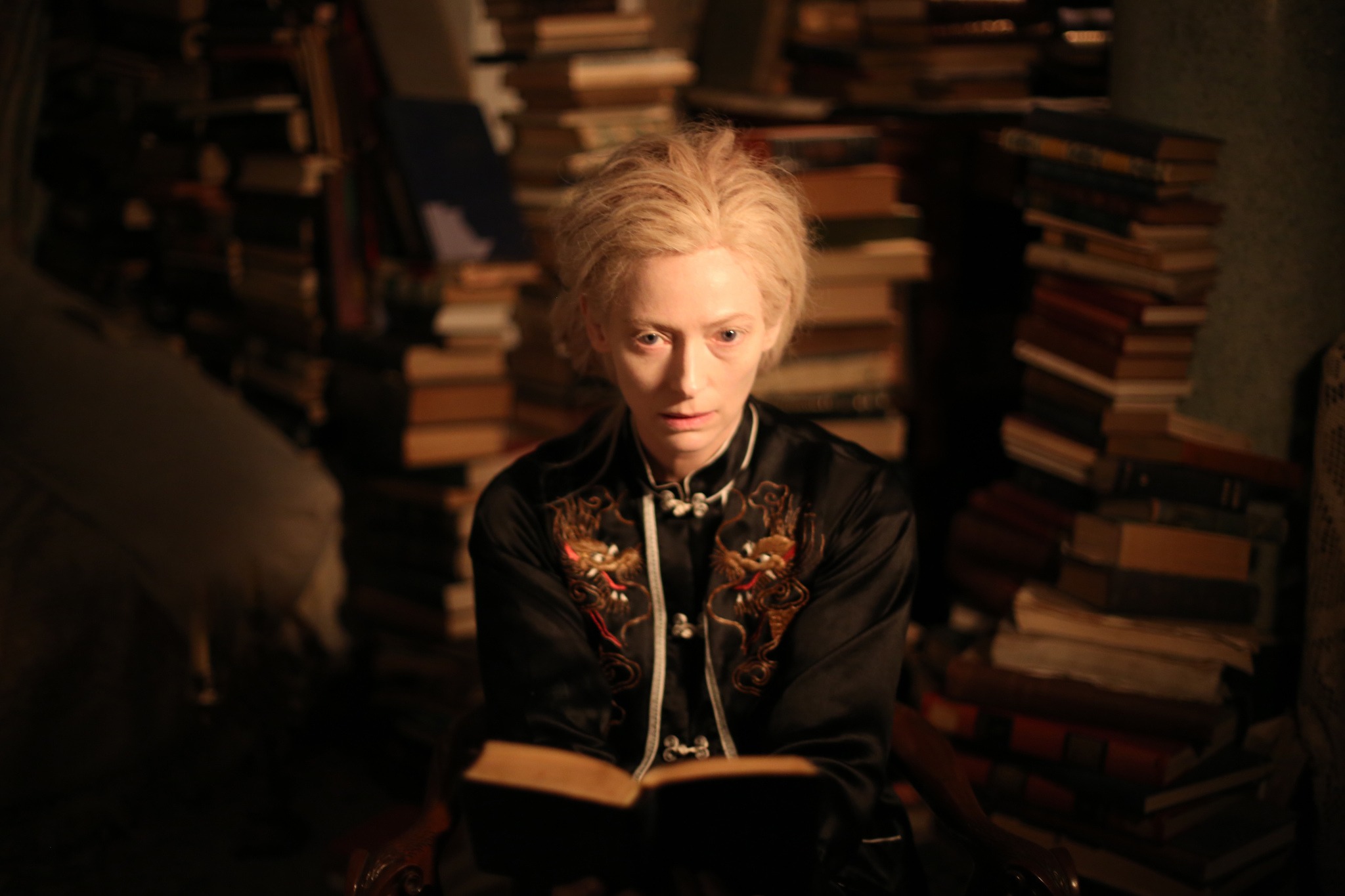
Only Lovers Left Alive is visually stunning, with a dark, atmospheric aesthetic that reflects its gothic themes. The cinematography, by Yorick Le Saux, creates a dreamlike quality that captures both the timelessness of Adam and Eve’s existence and the decay of the modern world around them. Detroit, with its abandoned buildings and dilapidated landscapes, serves as a perfect backdrop for the film, symbolizing the death of human civilization that the vampires have outlived. In contrast, the vibrant streets of Tangier, where Eve resides, are bathed in warm colors, reflecting her more hopeful and accepting nature. The contrast between these two cities underscores the differing outlooks of the two protagonists, adding a layer of visual depth to the film’s themes.
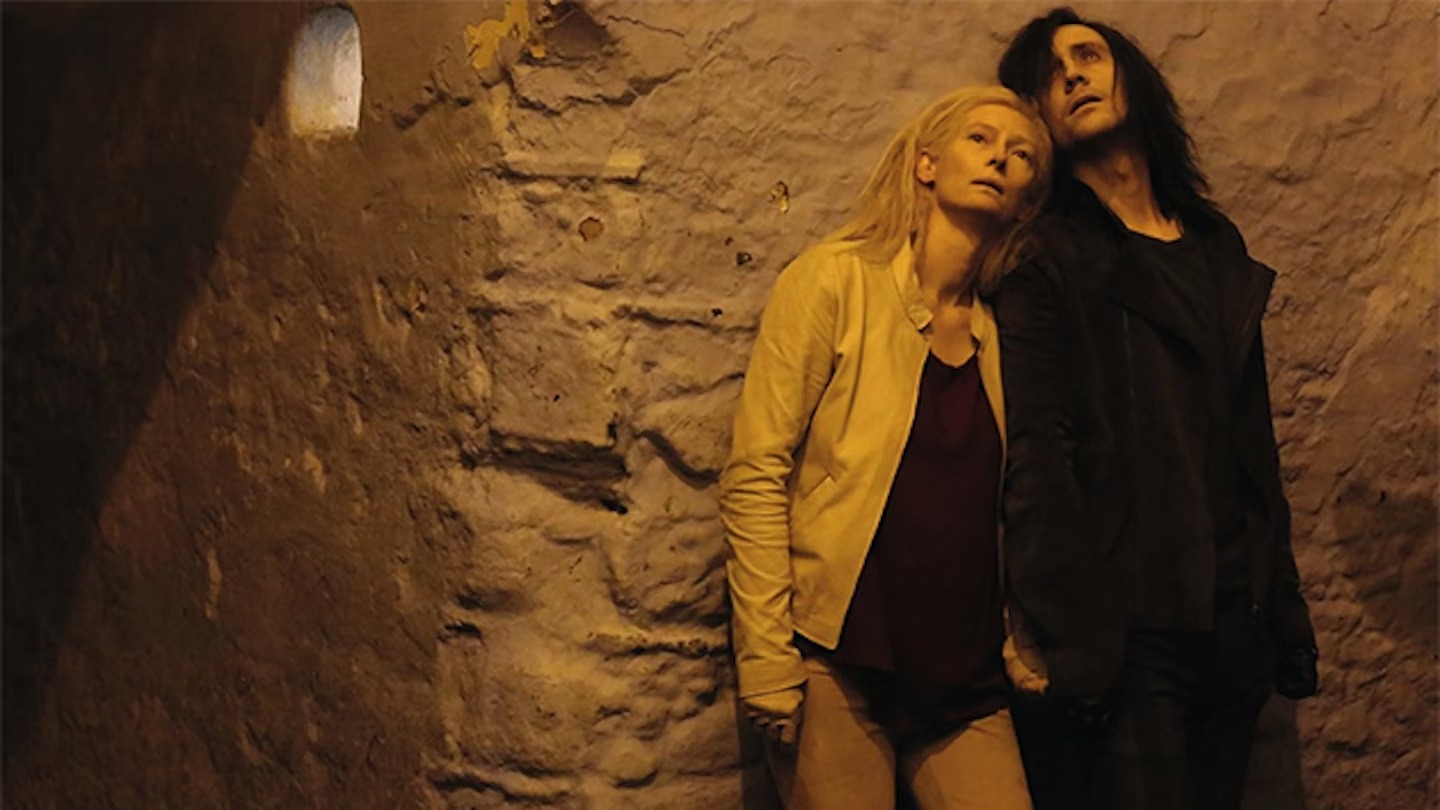
The arrival of Ava, Eve’s younger sister, played by Mia Wasikowska, introduces a disruptive force into the lives of Adam and Eve. Ava represents the chaos and recklessness that comes with youth, contrasting sharply with the more contemplative, grounded nature of Adam and Eve’s relationship. Her actions highlight the danger of immortality when one is not mindful of the consequences of their behavior. Ava’s presence also serves as a reminder of the human world that the vampires have distanced themselves from. She brings with her a sense of unpredictability, which forces the main characters to confront their own vulnerabilities and the ways in which they interact with humanity. Her disruptive influence ultimately brings both a sense of tension and renewal to the plot.
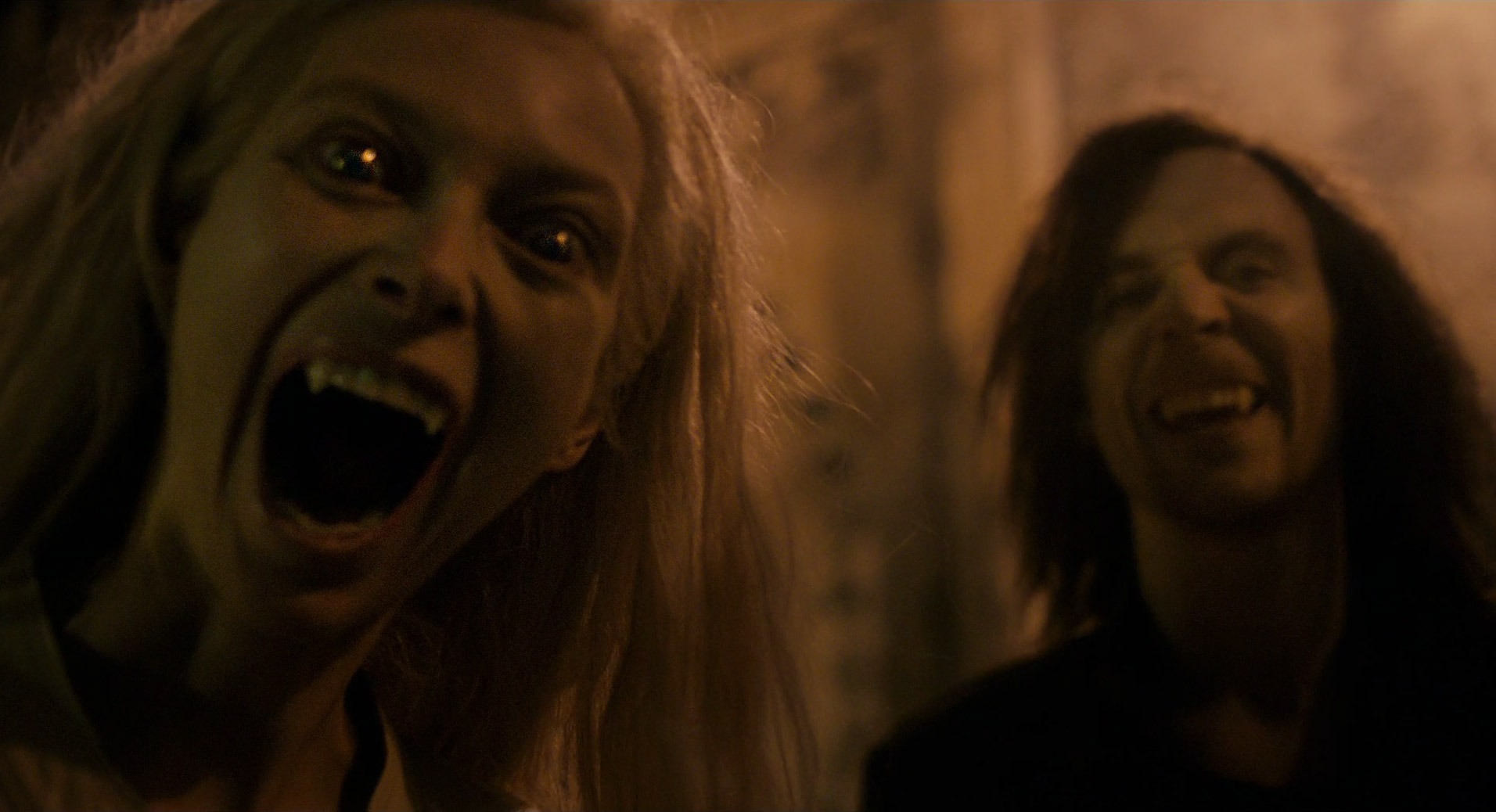
In conclusion, Only Lovers Left Alive is a hauntingly beautiful film that defies traditional vampire movie tropes, instead focusing on existential themes of love, time, and the search for meaning. Jim Jarmusch’s direction, combined with exceptional performances by Tilda Swinton and Tom Hiddleston, creates a film that is both intellectual and deeply emotional. With its atmospheric cinematography, lush soundtrack, and unique approach to the vampire genre, Only Lovers Left Alive stands as a meditative exploration of life, art, and immortality. It’s a film that resonates with viewers long after it ends, offering a poignant reflection on the nature of existence and the enduring power of love and creativity.











